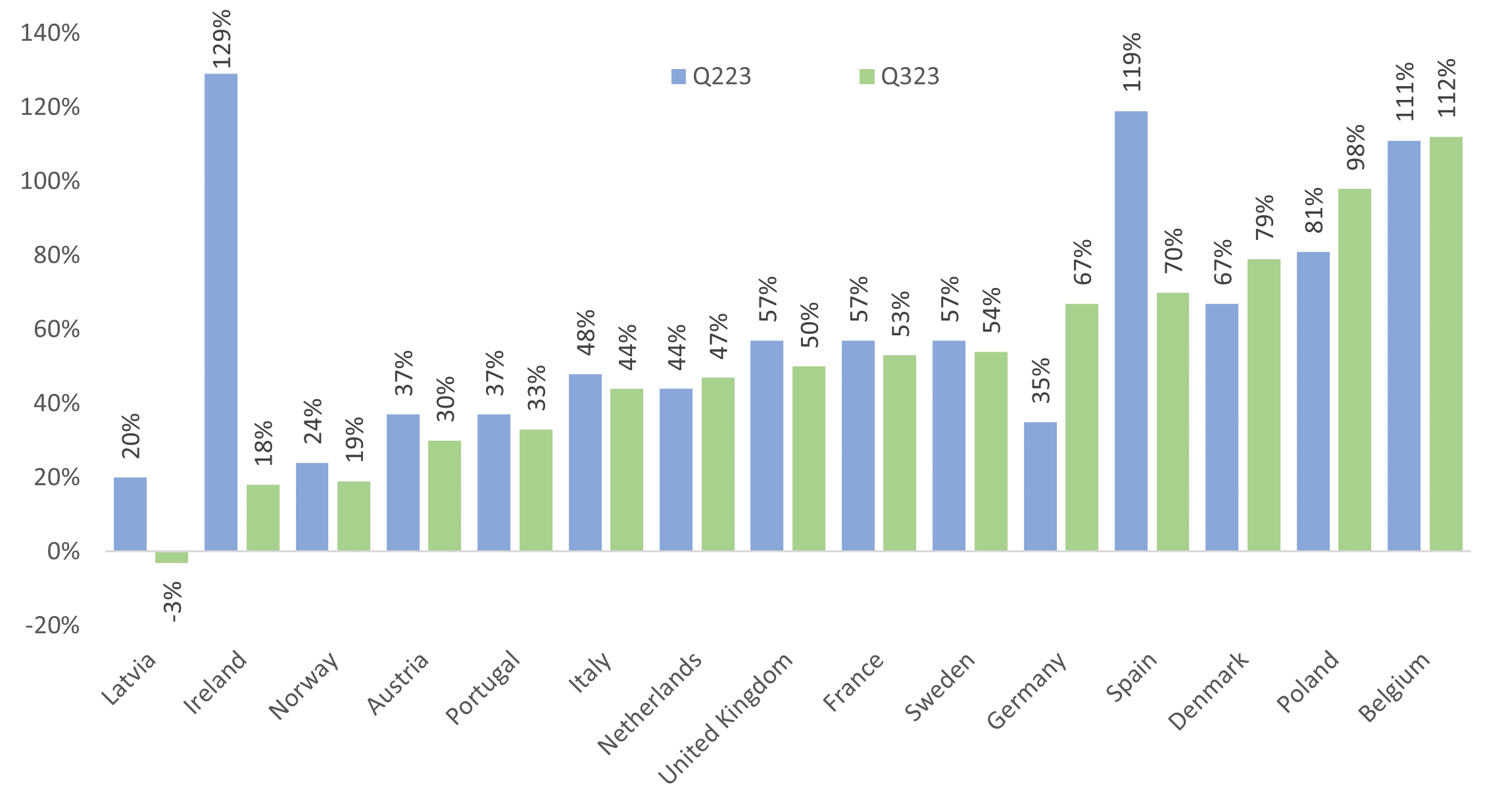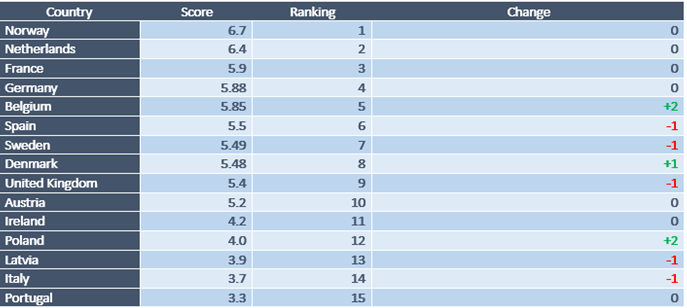The data analysed for Cornwall Insight and law firm Shoosmiths’ Electric Vehicle Country Attractiveness (EVCA) Index1, has shown that despite previously holding the highest growth rate among major European countries, soaring at an impressive 129% from Q222 to Q223, growth has now dwindled to 18% in Q323.
Although Ireland’s network of public charge-points is now within the estimated 2,540-4,850 needed by 2025 – according to the Electric Vehicle Charging Infrastructure Strategy 2022-2025 – such a drop-off in growth could act to slow down the country’s electric vehicle (EV) transition.
It is hoped that this decline will be temporary with Ireland's Budget 2024 bringing clarity and incentives for continued growth. This includes extending vehicle registration tax relief and benefit-in-kind tax rates for BEVs until 2025.
This, combined with the development of a national delivery plan for en-route charging due for release in late 2023, implies that Ireland could reinvigorate its BEV market moving into 2024.
Figure 1 – Publicly accessible charge-point growth, (year-on-year change)

Source: European Automobile Manufacturers Association (ACEA)
Despite the drop in the charge point expansion this quarter, Ireland has retained its position at number 11 on the EVCA Index. It is hoped the government’s policy announcements will help the country move up the table in 2024.
Figure 2: EVCA Index scores and rankings

Source: Cornwall Insight
Jamie Maule, Research Analyst at Cornwall Insight said:
“Ireland’s recent slowdown in EV charge-point growth is a reminder that we cannot rest on our laurels when it comes to EV adoption. Any dip could derail the transition, and with Ireland’s EV programme at an earlier stage than many major European countries, it is essential they keep up momentum.
“While this decline is certainly not good news, we are hopeful that it is temporary. The Irish government has taken some positive steps to support the EV market moving in to 2024, and we are confident that the country will be able to get back on track.”
Chris Pritchett, Energy and Infrastructure Partner at Shoosmiths said:
“Ireland’s Budget 2024 and a national delivery plan for en-route charging could, by offering tax relief and incentives for BEV owners, provide a much-needed boost to the country’s EV transition, following a slower growth in public charging infrastructure this quarter. The transition is all about maintaining momentum and confidence, and whilst we are seeing new EV hubs being deployed by the likes of Weev, Instavolt and Fastned, greater speed is needed to keep Ireland in the race”
Reference:
The Electric Vehicle Country Attractiveness (EVCA) Index is a quarterly ranking that charts the relative attractiveness of major European nations for investment in EVs. A range of indicators, subject to differing weightings, have been utilised in the production of this index. They are listed as follows without regard to importance or weighted value:
Committed government funding
National EV sales targets
National EV charge-point implementation targets
Support for ICE vehicle rollback or ban
Available investment subsidies, funds, and tax benefits for EVs and EV charge-points
Available purchase subsidies, funds, and tax benefits for EVs and EV charge-points
Ability to conduct business
Rate of inflation
Market share of BEVs in new registrations/sales
Share of BEVs in the passenger car stock
Four-quarterly growth of BEV sales
BEVs per publicly accessible charge-point
Charge-points per kilometre of motorway
Four-quarterly growth of publicly accessible charge-points
Achievement of Alternative Fuels Infrastructure Regulation (AFIR) fleet-based charge-point targets
Wholesale cost of electricity scaled to GDP